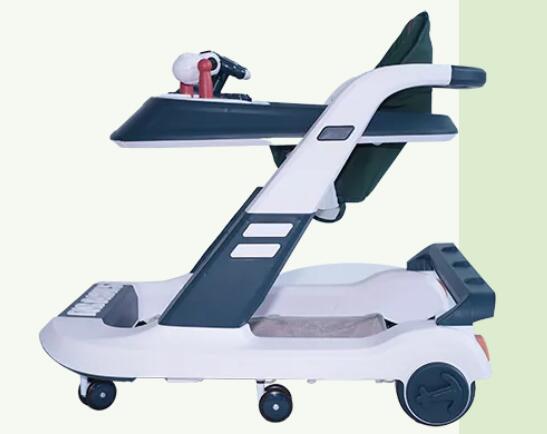Why Not to Buy a Baby Walker
Baby walkers have been a popular item in many households for decades. They are often seen as a helpful tool to aid in a child's development and mobility. However, there is a growing body of evidence and expert opinion that suggests buying a baby walker may not be the best choice for your child. In this article, we will explore the reasons why you should think twice before purchasing a baby walker.
Safety Concerns: One of the most significant reasons to avoid buying a baby walker is safety. While walkers may appear to provide a sense of mobility and independence for a child, they can be dangerous. According to the American Academy of Pediatrics (AAP), thousands of children are treated in emergency rooms each year due to walker-related injuries. Babies in walkers can easily roll down stairs, reach hazardous objects, or collide with furniture, leading to accidents that can result in serious injuries.
Delayed Development: Contrary to popular belief, baby walkers do not promote early walking or help a child develop faster. In fact, they can potentially hinder a child's natural development. Babies learn to walk best when they have the freedom to explore and practice motor skills without the constraints of a walker. Walkers encourage an unnatural, toe-walking gait, which can lead to developmental delays in balance and muscle development.

Decreased Supervision: When a child is in a Lightweight walker, there is often a false sense of security that may lead parents or caregivers to be less vigilant. This can result in accidents as parents may assume their child is safe while the child is actually at risk of getting into hazardous situations.
Limited Cognitive Development: Babies need to explore their environment through crawling and other natural movements to develop cognitive skills and spatial awareness. Baby walkers restrict a child's interaction with their surroundings and can limit opportunities for learning. Crawling, in particular, is crucial for the development of hand-eye coordination and problem-solving skills.
Hindrance to Muscle Development: Using a walker can affect a child's muscle development, particularly in the legs. The repetitive, unnatural movement of a walker can lead to muscle imbalances and hinder the development of essential core muscles. This can potentially lead to problems later in life, such as poor posture and muscle weakness.
Reduced Parent-Child Interaction: Another drawback of baby walkers is that they can limit the interaction between parents and their children. While it's tempting to place a baby in a walker to keep them occupied, it can hinder the crucial bonding moments that occur during floor play and supervised exploration.
Alternative Safer Options: There are safer alternatives to baby walkers that promote a child's development and mobility. These include stationary activity centers, play mats, and tummy time, all of which encourage natural development and exploration without the associated risks of walkers.
In conclusion, while baby walkers may seem like a convenient tool to help your child move around, they come with significant risks and drawbacks. Safety concerns, potential delays in development, and the possibility of long-term negative effects on muscle development and cognition make Multifunctional baby walkers a questionable choice for parents. It's essential to prioritize your child's safety and development over the perceived convenience of a walker. Instead, consider alternative options that encourage natural development and allow for supervised exploration in a safe environment. Your child's well-being and healthy development should always be the top priority.


